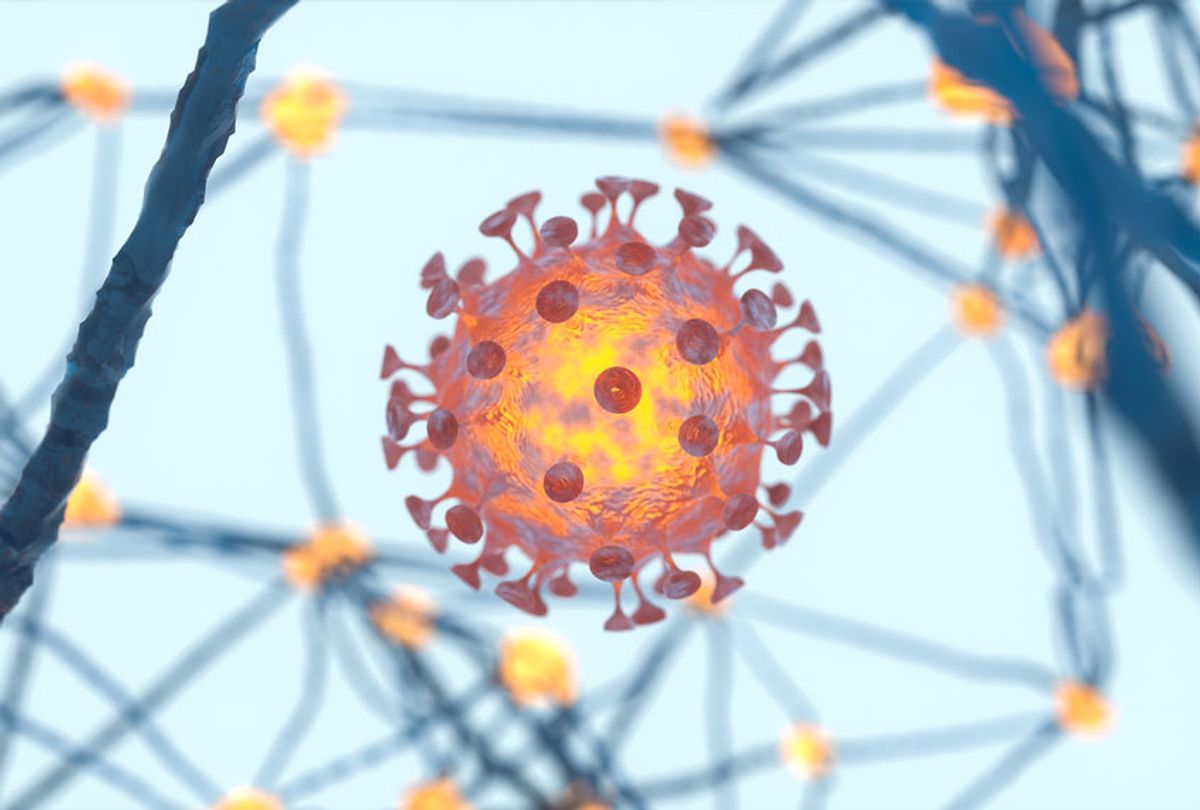An ominous new study suggests that COVID-19 may be linked to psychological and neurological conditions including strokes and psychosis.
Published in the journal Lancet Psychiatry, the small-scale study utilized doctors' observations of patients in British hospitals during the pandemic's exponential phase in April. Doctors were asked to report clinical details about COVID-19 patients whose neurological and psychological complications could suggest a neurological component to the disease.
The study correlates with a recent discovery that the coronavirus is a blood vessel disease as well as a respiratory infection, meaning that it affects bodily systems well beyond the lungs.
In the introduction to their paper, the authors claim that "ischaemic stroke was common in our cohort of 153 patients (most of whom were confirmed to have COVID-19). We identified a large group of patients with altered mental status, reflecting both neurological and psychiatric diagnoses, such as encephalitis and psychosis. Altered mental status was identified across all age groups, and many younger patients had this presentation."
The implication of their research, they claimed, was that practitioners of clinical neuroscience should engage in interdisciplinary work during the COVID-19 era.
"Concerns regarding potential neurological complications of COVID-19 are being increasingly reported, primarily in small series. . . . The aim of this study was to investigate the breadth of complications of COVID-19 across the UK that affected the brain," the authors wrote.
The authors also argued that clinicians should keep an eye out for "patients with COVID-19 developing these complications and, conversely, of the possibility of COVID-19 in patients presenting with acute neurological and psychiatric syndromes." They advocated that upcoming research projects address issues including "the role of viral neurotropism, host immune responses, and genetic factors in the development of such complications so that clinical management strategies can be developed."
The study concluded, "Cases notified by the professional membership of these bodies were obtained from across the UK, and an exponential rise in cases of neurological and psychiatric complications of COVID-19 occurred during the exponential rise in overall COVID-19 cases reported by UK Government public health bodies."
In an interview with The Guardian, the study's lead author, the University of Liverpool's Benedict Michael, explained what motivated the study.
"There have been growing reports of an association between Covid-19 infection and possible neurological or psychiatric complications, but until now these have typically been limited to studies of 10 patients or fewer," Michael explained. "Ours is the first nationwide study of neurological complications associated with Covid-19, but it is important to note that it is focused on cases that are severe enough to require hospitalisation."
Dr. Russell Medford, Chairman of the Center for Global Health Innovation and Global Health Crisis Coordination Center, spoke with Salon by email about the study.
"This is a well-designed, systematic study from multiple medical centers in the U.K. to provide much needed nationwide surveillance data on the frequency and types of neurological and psychiatric complications in patients with COVID-19," Medford explained. "This will allow scientists to better focus their ongoing and future studies on the mechanism(s) by which SARS-Cov2 affects the brain, and for clinicians to use these insights to develop better and more effective therapies."
He added, "In this study, ischemic stroke was the most common neurological complication observed. This is very consistent with the growing body of scientific and clinical evidence demonstrating a direct effect of the SARS-CoV2 virus on blood vessels, coagulation and platelet function."



Shares